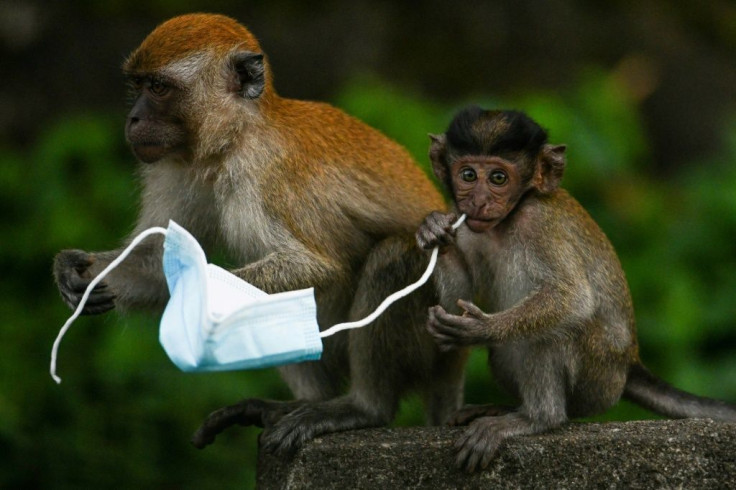Why New COVID-19 Vaccines May Require A 'Monkey Reserve'
As COVID-19 vaccine research continues, labs find themselves facing critical shortages of research animals due to slashed colony budgets and disrupted international trade. Virus variants could require new vaccines, and some labs are calling for emergency funding to try and catch up.
The pandemic presented a perfect storm to create a shortage: a massive spike in demand for specialized test monkeys collided with years of reduced budgets and trade problems with China, the leading exporter of the animals, The New York Times reports. The combined effect sent prices above $10,000 per monkey--if they were even for sale.
“Now, it’s not even a matter of money,” Yan Shuo, a sales manager for Hubei Topgene Biotechnology, said. “We don’t even have monkeys to sell abroad.”

Shen Weiguo, general manager of the Shanghai Technology Venture Capital Group, told Chinese lawmakers in January that Chinese biomedical firms were short almost 3,000 monkeys last year, with the gap expected to grow 15% annually. With the Chinese government halting animal exports to prioritize the development of its own vaccines, U.S. labs were even worse off.
“We lost work because we couldn’t supply the animals in the time frame,” Mark Lewis, chief executive of Bioqual, told The New York Times.
Researchers warn that the shortage won’t disappear any time soon as demand for new vaccines remains high in the face of COVID-19 variants. Unless action is taken, the lack of subjects will become a serious impediment to research. The Atlantic notes that the monkey shortage has also affected non-COVID research as pandemic-related studies are being prioritized.
Experts have long suggested allocating more funds to colonies whose budgets were cut before the pandemic to creating a stockpile of subjects. The idea dates back almost a decade ago, but it was never implemented.
“The strategic monkey reserve is exactly what we needed to deal with Covid, and we just didn’t have it,” said Keith Reeves, an investigator at Harvard’s Center for Virology and Vaccine Research.
© Copyright IBTimes 2025. All rights reserved.





















